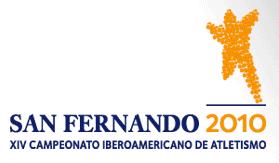
Ibero-America or Iberian America is a region in the Americas comprising countries or territories where Spanish or Portuguese are predominant languages. Ibero-America is made up the predominant part of Latin America. Portugal and Spain are themselves included in some definitions, such as that of the Ibero-American Summit and the Organization of Ibero-American States. The Organization of Ibero-American States also includes Spanish-speaking Equatorial Guinea, in Central Africa, but not the Portuguese-speaking African countries.

The National Assembly of the Socialist Left was an alliance of far-left groups in Mexico. The only assembly of the socialist left for the creation of a "Socialist Front" was held in Mexico City April 16–17, 2005. The appeal inviting to the meeting was signed by:
Universidad Técnica Particular de Loja (UTPL) is a private institution that provides on-campus and continuing education programmes. There are 23 Bachelor's degrees on the Loja campus and 20 continuing education programmes.
The Ibero-American Summit, formally the Ibero-American Conference of Heads of State and Governments, is a yearly meeting of the heads of government and state of the Spanish- and Portuguese-speaking nations of Europe and the Americas, as members of the Organization of Ibero-American States. The permanent secretariat in preparation of the summits is the Ibero-American General Secretariat (SEGIB).

OTI Festival was an annual singing competition, held between 1972 and 2000 among active member countries of the Organización de Televisión Iberoamericana (OTI). It was preceded in 1969 and 1970 by the Festival Mundial de la Canción Latina, held in Mexico.
FISEC or "Ibero-American Forum on Communication Strategies" is a nonprofit association founded in 2003 by a group of academic and professional experts as a common meeting point in the field of communication and strategy. It includes more than 350 experts from 120 universities and 130 members of the mass media, institutions and firms from Latin American countries, the United States, Italy, France, Germany and Russia. Among the members are French epistemologist and essayist Edgar Morin, Spanish psychologist José Luis Pinillos, Colombian philosopher Guillermo Hoyos, cultural anthropologist Constantin Von Barloewen, and communicators and media analysts Jesús Martín Barbero, Rafael Alberto Pérez, Jesús Galindo Cáceres, José Carreño and Sandra Massoni.

The 2010 Ibero-American Championships in Athletics was an athletics competition which was held at the Estadio Municipal Bahía Sur in San Fernando, Cádiz, Spain from 4–6 June. A total of 44 events were contested, of which 22 by male and 22 by female athletes. A total of 459 athletes from 29 nations participated in the championships. Twelve championships records were set at the fourteenth edition of the competition.

The Ibero-American Championships in Athletics is a biennial athletics competition for athletes representing Ibero-American countries as well as a number of other Spanish- or Portuguese-speaking countries in Africa. The competition is organised by the Asociación Iberoamericana de Atletismo.

The 1986 Ibero-American Championships was an athletics competition which was held at the Estadio Pedro Marrero in Havana, Cuba from 27 to 28 September 1986. A total of 36 events, comprising 21 men's and 15 women's events, were contested by sixteen countries. It was the second edition of the Ibero-American Championships, and the first to be held in Latin America. The Chilean city of Valparaíso was initially chosen to host the event, but the competition was moved after organisation difficulties. High temperatures at the venue affected athletic performances, particularly in the longer distance events.

The 2008 Ibero-American Championships in Athletics, was an athletics competition which was held at the Estadio Tierra de Campeones in Iquique, Chile from June 13 to the 15th. A total of forty-four events were contested, of which 22 by male and 22 by female athletes.

The 2004 Ibero-American Championships in Athletics was the eleventh edition of the international athletics competition between Ibero-American nations which was held at the Estadio Iberoamericano in Huelva, Spain on 6–8 August 2004. A record high of 27 nations took part while the number of participating athletes (430) was the second highest in the competition's history after the 1992 edition. The programme featured 44 track and field events, 22 each for men and women, and 16 championship records were broken or equalled at the three-day competition.

The 1988 Ibero-American Championships in Athletics was the third edition of the international athletics competition between Ibero-American nations which was held in Mexico City, Mexico from 22–24 July. A total of forty events were contested, of which 22 by male and 18 by female athletes. A total of 371 athletes and 20 nations took part in the three-day competition.

The 1992 Ibero-American Championships in Athletics was the fifth edition of the international athletics competition between Ibero-American nations which was held at the Estadio Olímpico de La Cartuja in Seville, Spain from 17–19 July. A total of 41 track and field events were contested and 14 new championship records were set.

The Asociación Iberoamericana de Atletismo is the governing body for the sport of athletics of European, Latinamerican, and African countries with iberian origin and/or Spanish or Portuguese language. Current president is Oscar Fernández Cáceres from Perú.

The Platino Awards, known in Spanish as Premios Platino del Cine Iberoamericano, are Ibero-America's annual film awards.

Foro Penal is a Venezuelan human rights organization that provides legal assistance pro bono to people subject of arbitrary detentions and their relatives. The organization is composed of regional coordinators for each state in Venezuela, pro bono lawyers on a national level and a network of over five thousand volunteers, non-lawyer activists, known as "active defensors".
La Casa Ida was a medialab and cultural center active between 2006 and 2014 in Lima, Peru, focused on research, production and education in technological artistic practices. It was founded by a group of contemporary artists led by architect, electronic arts researcher and professor Alvaro Pastor.

Angelo Cardona is a Colombian social entrepreneur, peace and human rights activist. He is representative of Latin America to the International Peace Bureau. Co-founder and President of the Ibero-American Alliance for Peace and peace ambassador of the Global Peace Chain. In 2021, he won The Diana Award.
The Platino Award for Best Miniseries or TV series is one of the Platino Awards, Ibero-America's film awards. The category was first awarded at the 4th Platino Awards in 2017 expanding the categories from awarding only cinema to also television productions.












